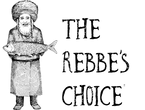Before the Baal Shem Tov was renowned he would often travel by himself, finding simple Jews and helping guide them in better serving Hashem. One day the Baal Shem Tov arrived at an inn run by a Jewish man, whose son informed the Baal Shem Tov that his father was finishing up praying and would be out to greet him shortly. When over two hours passed and the man finally emerged he apologized to the Baal Shem Tov for keeping him waiting and explained that he was a simple Jew, and that he could barely pronounce the words in his siddur. He continued to explain that he also does not know what prayers to say each day so he just goes from cover to cover every day! The Baal Shem Tov offered his assistance to this simple Jew, and for the next hour they sat together and the Baal Shem Tov wrote notes on small pieces of paper that he inserted into the siddur in order to help this innkeeper daven properly each day of the week. The next morning the Baal Shem Tov departed and when the innkeeper went to reach for his siddur he dropped it and all the small notes and instructions the Baal Shem Tov gave him fell out. The innkeeper was so distraught; finally he was about to pray properly and now this terrible tragedy befalls him! He quickly ran out the door in hopes of chasing down the Baal Shem Tov and getting his help once more. After a couple of miles he spotted the Baal Shem Tov far down the road, from afar he saw the Baal Shem Tov approach a raging river. The innkeeper began to sprint, he wanted to warn the Baal Shem Tov that this river is too intense to swim across and that it would be very dangerous, but before he could get within earshot of the Baal Shem Tov, the Baal Shem Tov took off his belt, placed it on the water and walked across as if it was a bridge, disappearing into the forest. When the innkeeper arrived at the swift moving waters he spread his belt across the water and crossed over just the same. Finally after running some more he caught up to the Baal Shem Tov. Hearing the man calling out to him, The Besht stopped and turned, to see the innkeeper running toward him, clutching his siddur in one hand and the papers in the other. “How did you get here?” asked the Baal Shem Tov in amazement, “How did you cross the river?” “With my belt, same as you,” replied this simple Jew. The Baal Shem Tov realized that although this Jew had no clue what he was saying when he prayed, Hashem was pleased with his Emunah and his dedication and therefore performed a miracle of sorts for this simple Jew. “I think,” said the Baal Shem Tov, “that God is extremely satisfied with your Davening as is. Perhaps you should continue to Daven just the way you have up until now.”
In this week’s Parsha Hashem says, “And you shall be holy men to me…”(22:30). Reb Menachem Mendel of Kotzk is quick to point out that Hashem wants us to be holy, but as men, as human beings. That we should not strive to serve Hashem as angels or as some great Rabbi did, rather we should serve Hashem like the Humans we are. God wants us to sanctify what we do as humans and bring ourselves higher and closer through refining ourselves to be holier people, not to become people that are holy like the angels. Reb Zusha of Annipol famously said, “When I pass, and I am being judged for my deeds and actions in the next world, I am not afraid that the Heavenly Court will ask me ‘Zusha, why were you not like Moses?’ I am fearful that they will ask me, ‘Zusha, why were you not like Zusha?!”
In the end of the day Hashem wants us to be holy, but he wants us to be holy as who we are, not as someone or something else. We must be holy people, living a normal life that we work to sanctify and connect to God through our efforts, by doing this we can fulfill the commandment of Hashem to be holy for Him.


